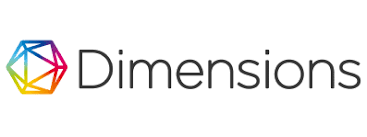- Aim and Scope
- Section Policies
- Peer Review Process
- Open Access Policy
- Article Processing Charges (APCs) & Article Submission Charges
- Publications Ethics
Aim and Scope
The Journal of Contemporary Sociological Issues (CSI) is managed by Advanced Studies on Socio-Economic Development (ASEED) based at the University of Jember. CSI is oriented to developing multi-disciplinary research that collaborates with social humanities studies, particularly on the sociological dimension. Thus, sociological perspectives, theories, and methodologies are being used to encourage social humanities research and contribute alternative ideas. By promoting empirical inquiry across global and local scales, CSI is committed to representing the complexities of social transformation occurring in the world today, especially for the creation of dialectics and the spirit of emancipation.
The Journal of Contemporary Sociological Issues (CSI) publishes original research articles. The journal prefers papers that extend existing theories or generate a new approach through interpretive engagement with empirical cases. Articles based on single-country case studies should indicate and develop the broader relevance of their analyses for an international readership. The journal does not publish an interpretation of single texts. However, it does consider critical, contextualized readings that similarly indicate and develop the broader relevance of their analyses to the field.
The objective of this journal comes from the sociological perspective on "Social Transformation" and its current effect on social practices and realities in the globalized world. Thus, the scope of this journal covers interdisciplinary studies on contemporary sociological issues and beyond.
CSI is primarily focused on issues related to economic and sustainable development, media and communication, youth and marginal communities, feminism and woman's rights, post-colonialism and social movements, social transformation, political rights, religious practices, health care systems, minority rights, and identity, peasantry and land rights, tradition and indigenous rights, social changes, demographic and labor, alternative educational systems, tourism and heritage, demography and working-class, bureaucracy, and good governance, Conflict, and Peace, environmental and conservation, and various additional cultural articulations issues in the local or global context.
In the hope that this journal eventually serves as a platform for discussion and debate, a plurality of opinions and perspectives are also welcomed. For more information about CSI's focus and scope, please send any inquiries to the email provided on the contact page.
In keeping with its commitment to distributing and disseminating information regarding contemporary sociological issues to as broad an audience as possible, CSI allows free and open access to all of its published works.
Section Policies
Articles
Peer Review Process
The article submitted on CSI would be going through a process of double-blind peer-reviewed. At least two peer-reviewers will review every submitted paper. This ethical statement binds the behavior of the author, the editor, the reviewers, and the publisher. Articles are accepted in CSI and can be followed by a process peer-reviewed online. The language used in this journal is English language.Open Access Policy
This journal provides immediate access to its content on the principle that making research freely available to the public supports a greater global exchange of knowledge. This journal is an open-access journal, meaning that all content is freely available to users or institutions without charge. Users are allowed to read, download, copy, distribute, print, search, or link to full-text articles in this journal without asking prior permission from the publisher or author.
This work is licensed under a Creative Commons Attribution-ShareAlike 4.0 International License, which permits share, copying, and redistributing of the material in any medium or format as long as you give appropriate credit to the original author(s) and the source, provide a link to the Creative Commons license. If you remix, transform or build upon the material, you must distribute your contributions under the same license as the original. The licensor cannot revoke these freedoms if you follow the license terms. To view a copy of this license, visit this permalink.
Authors who publish with this journal agree to the following terms:
1. Authors retain copyright and grant the journal right of first publication with the work simultaneously licensed under a Creative Commons Attribution-ShareAlike 4.0 International License that allows others to share the work with an acknowledgment of the work's authorship and initial publication in this journal.
2. Authors can enter into separate, additional contractual arrangements for the non-exclusive distribution of the journal's published version of the work (e.g., post it to an institutional repository or publish it in a book), with an acknowledgment of its initial publication in this journal.
3. Authors are permitted and encouraged to post their work online (e.g., in institutional repositories or on their website) before and during the submission process, as it can lead to productive exchanges, as well as earlier and greater citation of published work (See The Effect of Open Access).
You are free to:
Share — copy and redistribute the material in any medium or format.
Adapt — remix, transform, and build upon the material for any commercial purpose.
The licensor cannot revoke these freedoms if you follow the license terms.

This work is licensed under a Creative Commons Attribution-ShareAlike 4.0 International License.
Article Processing Charges (APCs) & Article Submission Charges
This journal charges the following author fees.
Article Submission FREE: 0.00 (Rp)
Fast-Track Review FREE: 0.00 (Rp)
Publications Ethics
Our ethical statements are based on COPE’s Best Practice Guidelines for Journal Editors. Three parties should consider the ethical policy of CSI.
ETHICAL POLICY FOR AUTHORS
It is entirely the author's responsibility to ensure that any manuscript submitted to CSI includes: assurance of originality, acknowledged assistance from co-authors and editors, requisite citations, and is entirely free from plagiarism. Authors must understand that plagiarism takes many forms, including inappropriate paraphrasing, which may lead to a misinterpretation of the source. Additionally, authors must use discretion when knowingly publishing information that may harm those named in their academic work. Information of this kind cannot be published without explicit, written permission from those persons to whom the information pertains.
CSI uses a rigorous code of conduct on how to disseminate knowledge. It is always with an editorial deep awareness that all published manuscripts must meet the very high qualified academic standard to protect the integrity of the Journal and author. Additionally, as part of the worldwide networks of open journals, CSI is committed to providing free issues with highly qualified publications.
All authors that use doctrinal and desk research should ensure that their references provide diverse and balanced information to take a neutral position when proposing an argument. Authors that use empirical data should provide enough rich information to help them develop analyses and propositions. The authors must also declare that their manuscript is original and cite all references properly.
ETHICAL POLICY FOR EDITORS
EDITORS should be accountable and responsible for everything published in the CSI. To ensure that editors can achieve all ethical standards, they must operate under the standard of a double-blind review process to ensure the quality of the manuscript and decide whether the manuscript will be accepted or rejected solely based on its originality, quality, and prospect for knowledge dissemination for readers. Editors are prohibited from applying a discriminative policy by giving priority to or discouraging specific authors based on their religion, beliefs, ethnicity, gender, sexual orientation, or any form of personal background.
The ethics policy may also require Editors to re-check manuscripts before making a decision. Editors are often asked to communicate with reviewers and authors to clarify and enrich the substance of manuscripts. This communication will not reduce the authority of editors to accept or decline manuscripts.
ETHICAL POLICY FOR REVIEWERS
All reviewers must know that they are only mandated to review substances, not manuscript layout or language spelling. The layout will be completed by a copy editor, while a copy editor or language proofreader will check language spelling and grammatical errors.
All reviewers cannot disclose the confidentiality of author information.
All reviewers can decline the offer from the editorial office to review the manuscript if they think there will be a potential conflict of interest between the reviewer and the author. They can also decline the offer to review the manuscript if they believe their review work will not help authors to enrich the substance of the manuscript.






